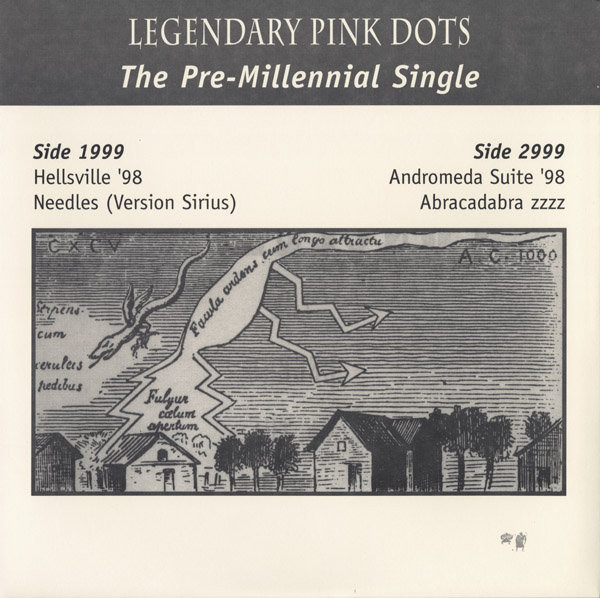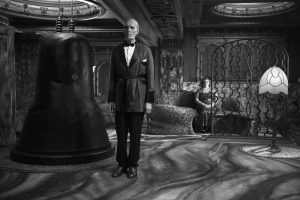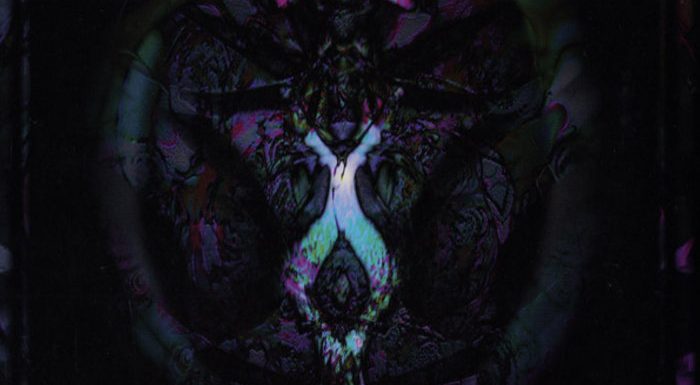

Edward Ka-Spel’s brilliance with The Legendary Pink Dots is to introduce us to isolated characters and then immerse us in their world-view through expansive and mysterious soundscapes. He begins with the most restricted, infinitesimal point of consciousness and then slowly expands it outward towards a state of ‘cosmic consciousness’ (to use the phrase of 1960s psychonauts). Musically, he often follows this template of expansion, with simple melody lines repeating and layering in increased complexity of texture. Much of the LPD’s music is an undertaking to help the listener (and perhaps composer) escape his/her own head. Lyrical phrases, musical motifs, album titles and themes recur across decades, but tonal shifts between albums are slow and subtle. Hopefully, The Legendary Dots Project, like the Residents and Sparks projects before, will provide the keen reader and listener with a giddy entry-point into the Legendary Pink Dots’ musical world. Fulfil the prophecy!
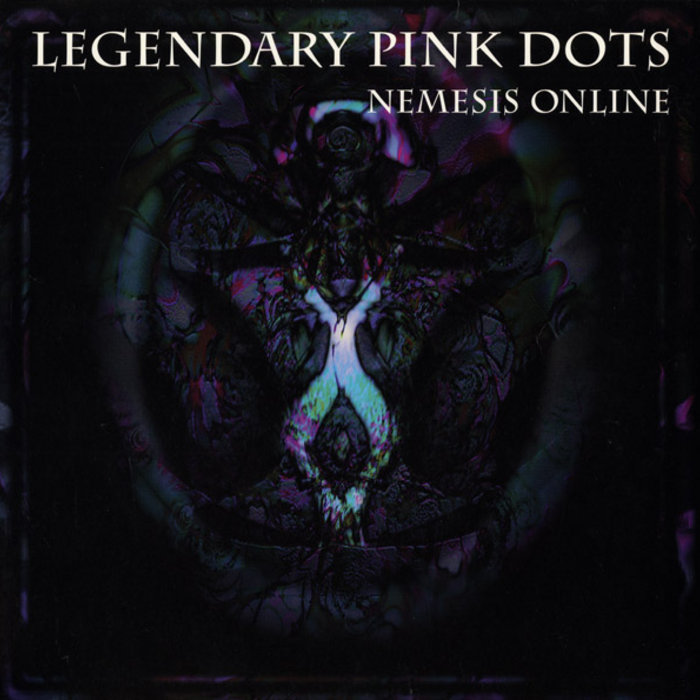
Tom: Track-by-track review of the album:
- ‘Dissonance’, a rare use of tremolo guitar effect breaks us in. EK-S is in reporter but also preacher mode. He discusses a landscape that is blighted and torched. I lost faith and you turn on me. “My crimes on humanity… I confess…” This is one of EK-S’s megalomaniac or totalitarian ruler first person protagonists, notably released in the era of Radovan Karadzic and Slobodan Milosevic’s Serbian regime’s war crimes and the Srebrenica genocide. Notably, this regime’s crimes against humanity were whitewashed by a sect the Revolutionary Communist Party, whose magazine LM (formerly Living Marxism) was forced to close in a libel case in April 2000. I encountered these people – now a powerful elite via the libertarian-right chatterati’s Spiked Online [Adam ed: another reason to me to loathe Brendan O’Neill!] and even high state circles now via Munira Mirza and Claire Fox – at a distance through their transitional organisation the ‘Institute of Ideas’ who organised debates between sixth-formers. This song is not bad; it grows on you a bit with the mournful wind instrument, but feels a bit leaden in comparison to recent albums.
- ‘Jasz’. Sonically feels spatially multiplane. Part of it is Badalamenti jazz progressions, with other sounds clashing. This is fairly atmospheric but it doesn’t quite feel essential but like LPD hitching a brief ride on the not inconsiderable back of Twin Peaks.
- ‘As Long As It’s Purple and Green’. Sample “an electric line feeling”. Avant musique concrète irruptions amid a solid krautrock rhythm and cavorting horns. It all feels a little muddied in its production, lacks quite the finesse of the previous two albums. “Get a life, get a life…” is the repeated whispered refrain. It isn’t thus far breathing as freely as Hallway of the Gods or seeming as intoxicating or compelling.
- ‘Ghost’ is all 1990s occult TV soundtrack MIDI melody, on basic synth piano and equally synthetic cor anglais. This suddenly shifts into animation with “Blood on the stairs” incantations from EK-S. I love the chord change to the “Nothing is real” bit. This works especially well in contrast to the chanted stasis of what follows and what precedes. Not so much of a curate’s egg as a curate’s portal, which for me carries an essence of PJ Hammond’s wonderfully economical video-studio drama Sapphire and Steel (ATV, 1979-

Sapphire and Steel (ATV, 1979-82) 82) which we re-watched fairly recently. The Transient Beings of Assignment Six seem a threat oddly attuned to the LPD lifeworld.
- ‘Under Your Wheels’ is minimalist, wistful… grave. A heartbeat rhythm. “But you’re tongue tied, you always have been. Your conversations, they have been far too few. No going back now, at least we have the time now to explore what’s happening deep inside you…” This feels an urgent, serious song about reaching out beyond yourself, in order to enlarge yourself and survive. After some mostly unhappy years, I managed in 1998 to do exactly this, making friends in a school context which had seemed just full of many people going along with a small number of bullies. “We’re not dog-tied, we’re individuals. And Angel, all I asked was set me free… But not THIS free…”
- ‘A Sunset for a Swan’ – Odd, cantering electronic stuff. Johnny is holding Juliet like he holds a cigarette, as the most memorable line goes. This detours into a different, more sedate style from 3:30.
- ‘Is It Something I Said?’ – A clattering, fairly mainstream rock production. It builds up a noisy head of steam, but this narrative of paranoia doesn’t really grab me.
- ‘Zoo’ is somewhat better. I like the throbbing organ arpeggios which underpin it. “We will rise! We will find a place that is just for us…” Not quite reaching the ascending summits of the previous albums, but decent enough.
- ‘Fate’s Faithful Punchline’ – Will there come a day? This is a sombre, earnest acoustic ballad. “Let this death be noble / Let this death be planned”. This is a grower, lovely horn sounds at 4mins. Seems like that LPD rarity: a song that could very easily soundtrack a Hollywood fantasy adventure. It might speak for a character who is self-doubting, aiming to obtain hero status, who may or may not deserve this benighted grail of idealism.
- ‘Cheating the Shadow’ – Fairground whirligigs in waltz time. This carny scenario is quite musically inventive, but somewhat shackled by a humdrum production that fails to ignite.
- ‘Abracadabra’ – A foreign tongued chant opens. This evolves into a swirling space rock juggernaut with thudding motorik beat, infusing the song with the sort of stark vitality much of the rest of Nemesis Online has lacked. This goes pleasurably haywire after the 4 minute mark.
- ‘Slaapliedje’ is Dutch or is that Afrikaans for ‘lullaby’. Like a spindly musical box via MIDI melody, into which EK-S finally enters. That phrase again that “my future’s been cancelled“. He recounts a parental figure urging a “baby” to sleep, “it’s all just a dream.” Shhh.
This album does have its moments, really about four of them for me: ‘Ghost’, ‘Under Your Wheels’, ‘Fate’s Faithful Punchline’ and ‘Abracadabra’. Those seem fully formed. It isn’t that the rest is bad as such, but it feels like minor league LPD after the pretty astonishing sequence of albums the band had put out in the 1990s previously. So, a rare disappointment in the LPD album stakes but even this contains what would have made a pretty cracking EP.
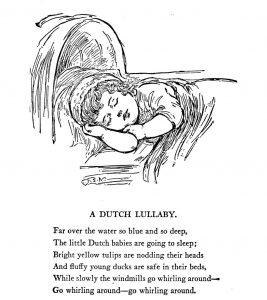
At Adam’s prompting, I gave Nemesis Online another listen in April 2022,
While I didn’t change my mind on the opening pair, on ‘As Long As It’s Purple’, the musique concrète-krautrock motorik-jazz fusion seems to be gelling in a fine off kilter way. ‘Ghost’ with its stasis chords and lo-fi MIDI keyboard sounds evokes home brew Robert Wyatt, Henry Cow, Slapp Happy arty, jazz infused free pop. Whispered chants evoke a tormented paranoia, amid unusual minor key chords. Good and more unique than most here. I still liked ‘Under the Wheels’, with its evocative heartbeat rhythm. ‘A Sunset for a Swan’ continues the LP’s predominant bare, MIDI feel, with spindly tendrils extending oddly, like insects doing Baroque harpsichord-like music… The latter part of this one loses a bit of interest after a compelling first half.
I was also fairly unchanged in my views on ‘Is It Something I Said?’, a minor Krautrock jam, with sprawling reverb. I can’t really make out Ka-Spel enough amid this murk. ‘Zoo’ has a fine, percolating jazz horn. ‘Fate’s Faithful Punchline’ like one of these serene, just post-Syd Barrett Pink Floyd ballads given understated Romantic grandeur. As before, I’d say this is a real highlight, with its shimmering guitar and ashen, outstretched horns… The oompah of ‘Cheating the Shadow’ still doesn’t do so much for me, while ‘Abracadabra’ still does: mental thundering rhythm with askew bleeps and injections of all sorts. A flaming tune. ‘Slaapliedje’ is a fairly ho-hum it’s-all-just-a-dream lullaby.
So, while I wouldn’t say I have changed my view all that much, I enjoyed Nemesis Online more. More up to a 7 out of 10, if we have to do Pitchfork type tabulations. In its bare, MIDI sound though it has, there is a delicacy. The mid-section works especially well – tracks 3 to 6, with ‘As Long As It’s Purple’ being one I appreciated much more on this re-listen. Perhaps it goes on 15 minutes too long and some tracks don’t add so much, but it is good, overall. The experimentation of Nemesis Online – its distinctness from other LPD LPs – now feels clearer, and I rather like its inventive use of under-production…
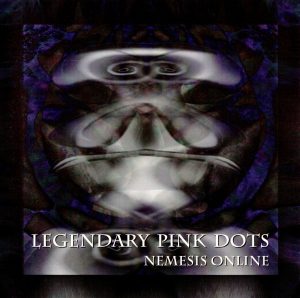
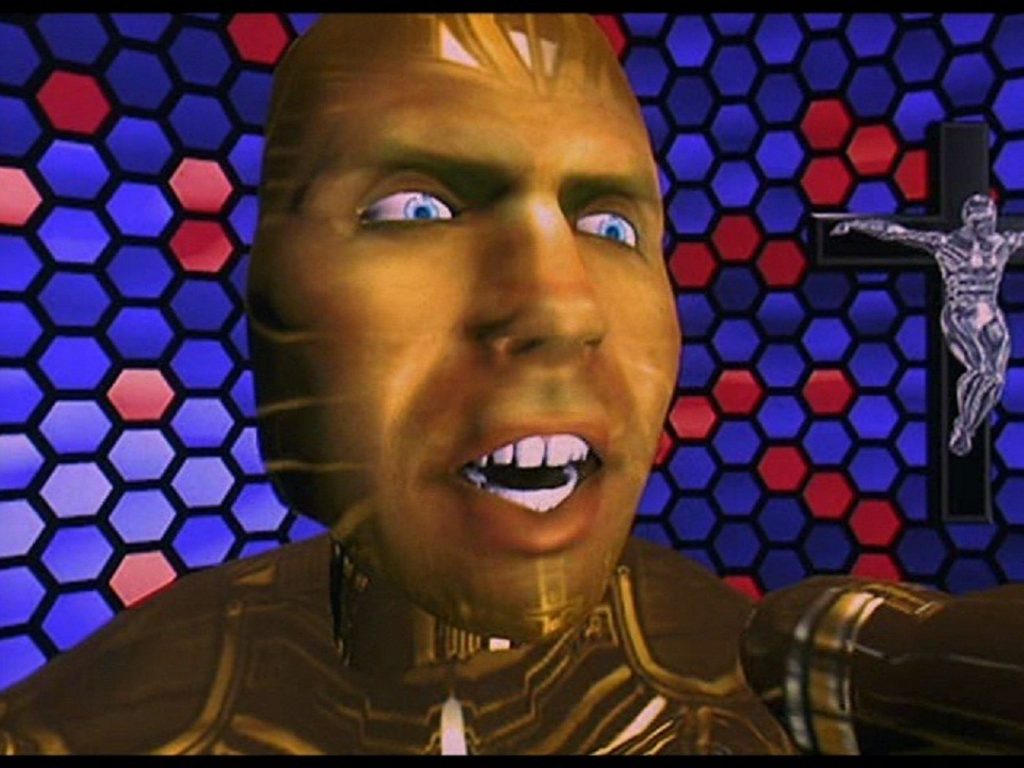
Adam: This one’s a grower in my opinion, but it takes its sweet time. I must admit that with a title like Nemesis Online I was expecting a rather more thematically focused album. 1998 was around when my family got dial-up internet at home and I remember each hour-long venture online felt like a shopping trip from which I would return with a low-res .jpg background, a handful of MIDI files and a corrupted .zip of a text-only abandonware game. I thought that Nemesis Online would explore this strange, unregulated digital realm at the turn of the Millennium, much as Jay Tholen’s remarkable game Hypnospace Outlaw (2019) would do years later. Otherwise, I expected a concept album in a realm similar to that charted by William Gibson’s Neuromancer (1984) or, at the very least, Lawnmower Man 2: Beyond Cyberspace (1996). 1998 was, of course, just a year before the release of The Matrix into cinemas. Anxiety around the “Millennium Bug” had been ratcheting up over the previous few years, especially in the U.S. where some individuals were stocking up on food, water, ammo and backup generators, while others just withdrew stocks from information technology companies.
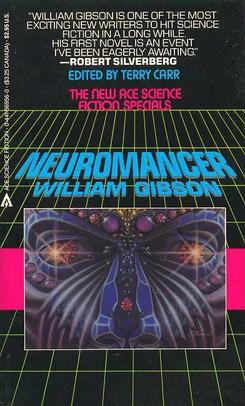
In actual fact, however, Nemesis Online is a collection of sonically diverse, often low-fi, tracks that seem to have little to do with cyberspace, at least on the surface. The album is a cracked sensory deprivation tank that lets in the dark water until, at first relaxed and floating free from ego, you slowly realise you are trapped and drowning. It is also closer to Edward’s solo albums in that it is intimately concerned with charting inner spaces through storytelling. It has sparse, limited production, with less instrumentation that one might expect considering that the band was a six-piece at the time, not just Phil and Edward, but also Niels van Hoornblower, Ryan Moore, Edwin von Trippenhof and Frank Verschuuren. It is nice to think that Edward and Phil were settling into Holland enough that they were now working with Dutch musicians in the band and working bits of Nederlands into the titles of their songs. Indeed, the album sounds as though the different individuals brought forward their own contributions, which were then further developed and/or combined. On the Bandcamp page Edward writes that “at a stone’s throw to the end of the century” there was a sense of urgency about completing the album, which was done “in a very swift month before dashing off to America to promote it”. His summation is that “[s]ometimes the energy is enthralling, sometimes it sounds like a little more time was needed”.
However, even if the album itself doesn’t quite provide the exegesis of cyberspace that I was hoping for, this is not going to dampen my technological excesses! As such, I am using the predictive neural network talktotransformer.com to complete some of my sentences for this review. Chatterbots, after all, still do not own their own intellectual or creative property.
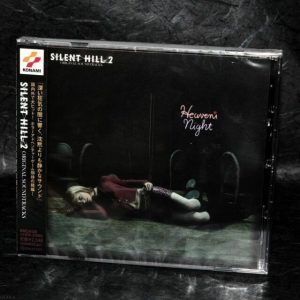
‘Dissonance’ begins proceedings with crunchy breakbeat lounge bar ambience. Edward sing-speaks his lyrics here insinuatingly like Momus or Jarvis Cocker, though I am less confident than Tom that the narrator is “one of EK-S’s megalomaniac or totalitarian ruler first person protagonists”. I imagined the narrator more as a Byronic cosmonaut or a government agent armchair philosopher (Philip K. Dick via Lee Harvey Oswald). If the track is narrated by a figure we might judge to be insufficiently guilt-haunted at the level of their conscious, but appropriately guilt-haunted at the level of their glimpsed sub-conscious, then they might find a twin in James Sunderland, the protagonist of Konami’s eerie 2001 survival horror classic Silent Hill 2 with a soundtrack by Akira Yamaoka that is highly (though coincidentally) reminiscent of the music here.
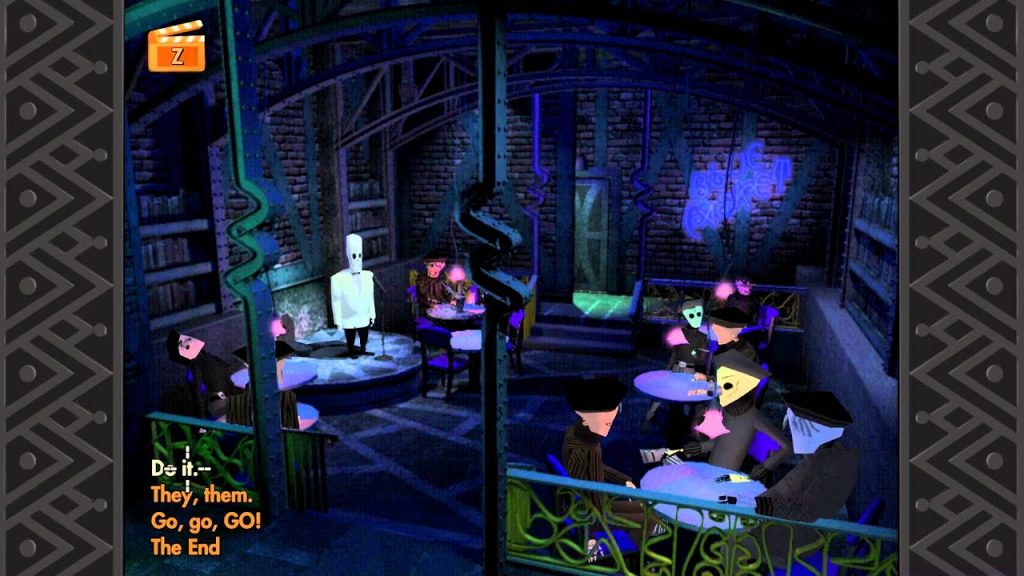
I sometimes wonder whether or not the following track, ‘Jasz’ might have been a great, wig-tastic post-punk-inspired dance track with a bratty John Foxx solo or even a Gun Club-style collaboration with Josie Cotton… but ‘Jasz’ is not that. Rather, it is a field recording from a time travelling jazz club, all burbles, dissonance, and snatches of harmonic scales being practiced. It creates an intriguing mental enviromental to mooch around in for a couple of minutes.
The neutral network, meanwhile, suggested that the second song on the album was named ‘Tusk Teeth Plentificators’ which, it claims, “moves, monolithically, to sparse, industrial electronics with eerie, slithering sirens and bleeps at its core”. This certainly sounds like the Dots, so I am suspicious that Alexa (set up in my parents’ bathroom, presumably to secretly measure the levels of various minerals in ours urine via audio recording) is passing on my listening habits to ‘Talk to Transformer’, which I can now see has been rechristened ‘InterKit’ due to the inferences it makes.
Third track, ‘As Long as It’s Purple and Green’, lingers unpleasantly to my ears, Ka-Spel’s sibilant lyrics and imperfect rhymes not covering up the somewhat uninspired melody and sheer irritation of the interchange of parping, squelchy noises and shrill, piercing ones. It also has a klaxon-like sound at the end which dredges up unhappy memories of my friend Peter forcing me to listen to happy hardcore in the sixth form common room back in 2005. Additionally, it’s just the kind of track that makes you go to sleep with a maudlin, crestfallen feeling.
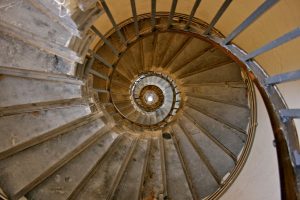
Four track, ‘Ghost’, with its lyrics of “blood on the door, blood on the stairs” might be a contemporary murder ballad soundtracking the 2004 documentary Death on the Staircase, recently dramatised for Netflix as The Staircase. Personally I avoid true crime stories and prefer to stay within the realms of the unreal for my horrors. Ka-Spel and Knight have produced a haunted nursery rhyme soundtrack of us morbid followers of the fictitious to get lost in. The wind instruments are strange and haunting. The multi-tracked vocals are disorienting, but not excessively so. ‘A Sunset for a Swan’ is more straightfoward in production but less slight in execution. The very pronounced acoustic strumming of the central melody takes a little getting used to, but it creates a very distinct sound that I haven’t heard before from the Dots. It is a difficult song to write about because none of its component parts are particularly weird or interesting, but they combine in a disorienting, dizzying way. It has a difficult-to-place martial sound produced by the snare(?) drum and horns as though the music were being made by a rink-a-dink robot army in a Civil War reenactment in Westworld! But you can also imagine the song being strummed alone on an acoustic guitar by Edward sat on a picnic blanket in an English country garden, all the martial stuff put to one side! Very confusing! In short, I don’t know how to identify what the core of the song is, if it even has one. As such, I am reduced to the technique that all music reviewers use when they are too lazy or inept to actually describe the music directly (mea culpa) and must make a comparison to other artists’ output… ‘A Sunset for a Swan’ is like a cross between The Kinks Are the Village Green Preservation Society (1968) and Matmos’s The Civil War (2003). I haven’t even touched upon the song’s lyrics yet, which are a sinister-whimsical take on the story of ‘Leda and the Swan’ as imagined by a smoker suffering a stroke… possibly. It’s all hovercrafts and eels to me, especially the languid, lucid section that begins at 03:28.
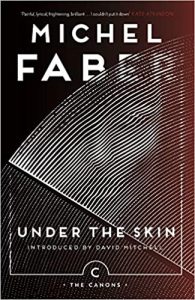
‘Is it Something I Said’ is a grungy stadium rocker, like Zooropa (1993) period U2 covering Nine Inch Nails (ed: sorry guys!) As such, it’s one of the first times in the Dots’ career where they risk sounding a few years out of date. Even Virgil Pink’s unofficial music video for the track is atypically uninspired since he just seems to have hired out a small venue with stage lighting and filmed one of his female muses standing around posing with a guitar on it! ‘Zoo’ continues in a similar vein, half-way between trance and trip hop. It sounds like it could have been programmed in Fruity Loops/ FL Studio, which was released in 1998, the same year as Nemesis Online. The sound is more chilled than the lyrical content perhaps warrants, which is possibly about humans imprisoned in an alien zoo, like Billy Pilgrim on the planet of the Tramafladorians. It certainly does not have the chilling impact of the ‘humans subjected to factory farming by aliens’ allegory Under the Skin by Michel Faber, published in 2000 and later adapted into a remarkable film by Jonathan Glazer in 2013.

We return to the softly trippy and transportive meditation vibes of the acoustic parts of From Here You’ll Watch the World Go By (1995) and Hallway of the Gods (1997) with the lovely ‘Fate’s Faithful Punchline’. It’s an emotionally resonant finger-picked breakup song about knowing a relationship is over but wanting to end things by causing the least emotional harm possible. It is a straightforwardly moving song, though from the solipsistic perspective of the narrator. There is honesty in that and the narrator comes across as less of a jerk than, for instance, Engelbert Humperdinck singing ‘Please Release Me‘. The lilting, searching horns that see out the end of the song courtesy of Niels van Hoornblower are beautiful. Less pretty, but equally as strong (I disagree with Tom here!) is ‘Cheating the Shadow’. I have a weakness for gothic oompah, even when it risks cliché. I have been relistening to mid-period Tom Waits albums recently, especially Alice (2002), which doubles down upon the sentimentality already present in the circus waltzes and sea shanties of the more magisterial Rain Dogs (1985). Those two albums have lyrics sympathetically showcasing such tragic grotesques as Uncle Bill with his tumor “as big as an egg” (‘Cemetery Polka’), Edward with the woman’s face “on the back of his head” (‘Poor Edward’) and Little Hans who “was always strange […] His father beat him, but he wouldn’t change”. The subject of ‘Cheating the Shadow’ seems more sinister. He is called “Jello Man” and, like Doug Hutchison in the classic X-Files episode ‘Squeeze’ (1993) slithers through holes and around corners. He “creeps unseen between the sheets” and “when you’re asleep, he creeps inside you”. What’s worse… “He’s sinking in his teeth. He’s breaking legs. He’s laying eggs.” Icky indeed!
‘Abracadabra’ is a much more clangorous, manic affair than the smooth Steve Miller Band track of the same name from 1982. It’s another track on the album that comes close to a kind of cut-up trance, a weird collage of electro-club noises and sound effects; which is the sound of music played by someone who has seen all the ghosts and apparitions of their past lives. Ka-Spel tears at unspoken obscenities and frightening hallucinations like a self-anointed destroyer of childhood nostalgia. With blaring beats, thrilling tones and monolithic riffing carried over from Barcelona-accented Siouxsie & Shpongle, dispelling the banal consumer sacrifices you made while you sat there sadly sucking on three caffeine plugs a day! The much-needed comedown after this magick rave is the lovely ‘Slaapliedje’. Maybe Tom needed the lullaby less than me, but I found it gentle tinkling, chiming reassurances that “it’s all just a dream” very comforting indeed…

My copy of Nemesis Online continues with two tracks that would crop up three years later on Chemical Playschool 11, ’10th Shade’ and ‘Schatten’. I think they’re both stronger than much of the album itself and will discuss them in greater depth when we review the later compilation. ’10th Shade’ is a wonderfully unsettling Ka-Spel monologue to a dark ambient piece by Phil, which recalls the weird fiction of Robert Aickman. ‘Schatten’ is a hypnagogic headphones track, beautifully produced.

Tom:
- ‘Hellsville’ 98′. Curiously enough, this seems like an echo in the underground – or is that, undergrowth? – of the phenomenon of the rerecorded landmark single, ‘Anarchy in the UK’ in 1996 tying in with a Finsbury Park gig which followed the nostalgic finishing of two John Lennon demos by the remaining Beatles in 1994-95. I was well into these rehashes at the time, which now sound pointless.
- ‘Needles (Version Sirius)’. “Living in a sick world and a sick neighbourhood, there comes a time for taking responsibility. Me and your ma have decided to go to a new place, Sirius…”
- ‘Andromeda Suite’ 98′. Flute is really prominent. “Free yourself, no possessions… Free yourself… Imagine there’s no heaven…” Libertarian left John Lennon stuff. The glorious, glorious chorus, to paraphrase Lawrence. A wife not found yet… I first heard this track on 4 October 2014, a Saturday night in Darlington, of all places, where there was a special club night called Strange Vibrations held in an upstairs function room of a pub called the Quakerhouse. The DJ was John Robinson, playing Aphex Twin, Nurse with Wound and so much else… And this! It was a great night!
- ‘Abracadbra ZZZZ’. Indistinct perhaps backwards or foreign tongued vocals. Definitely Italian female words sampled. Wonderfully mental mix of bleeping electronic psychedelia and free jazz.
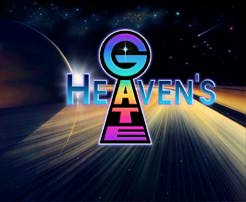
Adam: This is more of an EP than a single, with new studio recordings of tracks that the Dots often played live. Sadly, the energy of a live performance is not quite achieved here, making it a curious, inessential release. I have always found ‘Hellsville’ a bit too cluttered for me to get a handle on. This version only ups the ante on this! Ka-Spel’s breathless vocals are quite impressive though.
Neither Tom not myself were especially struck by ‘[City of] Needles’ when we first encountered it on Shadow Weaver (1992), with Tom describing the track as such:
“Whizzing, science-fiction sound-effects; a chugging, waddling electronic rhythm […] We then face a lot of clattering and repetition, to not especially remarkable ends.”
Musically the track is the same here, but with different lyrics that I find far more enthralling than the surreal trip through innerspace of the original. This time round the trip is to a new place… a new planet called Sirius! It seems quite like, however, that this is the same planet that the poor sods of the Heaven’s Gate cult went to. Indeed, I strongly suspect the 1997 mass suicide of 39 members of the cult inspired the lyrics to the song, in which a patriarchal true believer seeks to convince his son to join his parents on their journey. The only other option he’s presented with is taking a bunch of sleeping pills in the garden shed… “But remember this, when you wake up, you’ve gotta deal with it all by yourself from then on. No shoulders to cry on then, son! You’ll be facing yourself! You’ll be facing your fear! You’ll be standing in the presence of your fear!” While darkly funny, the overall effect is chilling.
‘Andromeda Suite ’98’ is an epic prog-dance sing-along! It is definitely one I would like to listen to on a field in a heighted, sleep deprived, or otherwise altered state. I feel the snatches of John Lennon’s ‘Imagine’ are rather playfully used here. Just as playful, though much more manic, is ‘Abracadabra ZZZZ’, which I think improves on the version on Nemesis Online just a touch via some more interesting production touches.
The only other addition on the extended Bandcamp version is ‘Nadelstadt Live’, the soundscape of which casts a weird Nigel Kneale sci-fi in one’s mind, though the lyrics are much more in the vein of Philip K. Dick and Harlan Ellison.
